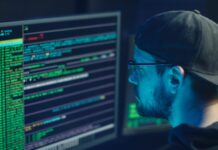Enjin Coin (ENJ) is a cryptocurrency and blockchain project that focuses on revolutionizing the gaming industry through the implementation of non-fungible tokens (NFTs) and blockchain technology. Founded in 2009 by Maxim Blagov and Witek Radomski, Enjin has become a prominent player in the blockchain gaming ecosystem. By leveraging the power of NFTs, Enjin Coin aims to enable gamers, developers, and content creators to create, trade, and monetize digital assets in a decentralized manner, ultimately empowering players with true ownership over in-game items.
1. NFT Integration: Enjin Coin is primarily known for its NFT integration within the gaming industry. NFTs are unique digital tokens that represent ownership of in-game assets like weapons, skins, characters, and more. These tokens are indivisible and easily transferable across multiple games and platforms, providing players with true ownership and control over their virtual assets.
2. ERC-1155 Standard: Enjin Coin’s blockchain infrastructure utilizes the ERC-1155 standard, a significant improvement over the traditional ERC-721 standard. ERC-1155 allows developers to create both fungible and non-fungible tokens in a single smart contract, which reduces blockchain bloat and enhances efficiency.
3. Multiverse Ecosystem: Enjin has developed the concept of the “Multiverse,” which refers to a network of interconnected virtual worlds where NFTs can be used and traded seamlessly. This ecosystem encourages cross-game integration, allowing items earned in one game to be utilized in another, fostering player engagement and liquidity.
4. Enjin Wallet: The Enjin Wallet is a user-friendly mobile application that serves as a secure and convenient means for users to store, manage, and trade their NFTs. It supports various cryptocurrencies and tokens, including ENJ, BTC, ETH, and ERC-20 tokens, offering a comprehensive solution for blockchain gaming enthusiasts.
5. Enjin Platform: Enjin offers a suite of developer tools and APIs that enable game creators to integrate blockchain-based features seamlessly. Developers can mint their own NFTs, design in-game assets, and implement blockchain-based functionalities, allowing for more interactive and innovative gaming experiences.
6. Real-world Use Cases: Enjin Coin has found practical applications outside of gaming. For instance, it has been used in the real estate sector, where NFTs represent ownership of properties, and in the art industry to authenticate and track the provenance of digital artworks.
7. Proof of Stake (PoS): Enjin Coin migrated from an Ethereum-based ERC-20 token to its blockchain built on a modified version of the Ethereum codebase. The Enjin mainnet employs a Proof of Stake consensus mechanism, reducing energy consumption and enhancing scalability compared to traditional Proof of Work systems.
8. Partnerships: Enjin has established partnerships with various gaming companies and projects, which have contributed to the expansion of the Enjin ecosystem. Some notable partners include Microsoft, Samsung, Binance, and Atari, among others.
9. Efinity: Efinity is a sidechain developed by Enjin to address the scalability challenges of the Ethereum network. It aims to provide fast and low-cost transactions for NFTs and decentralized applications (dApps) without compromising on security. Efinity could significantly enhance the usability of Enjin Coin in various gaming and non-gaming use cases.
10. Community and Adoption: Enjin Coin has garnered a strong and dedicated community of gamers, developers, and blockchain enthusiasts. The project’s focus on fostering adoption and creating practical use cases for NFTs has been instrumental in driving interest and growth within the gaming industry and beyond.
Enjin Coin is a pioneering project that blends blockchain technology and NFTs to revolutionize the gaming industry, giving players true ownership of in-game assets and encouraging cross-game interactions through its Multiverse ecosystem. With partnerships, real-world use cases, and a thriving community, Enjin Coin continues to make strides in reshaping the way we perceive and engage with digital assets in the gaming and non-gaming domains.
Enjin Coin (ENJ) is a cryptocurrency and blockchain project that focuses on revolutionizing the gaming industry through the implementation of non-fungible tokens (NFTs) and blockchain technology. Founded in 2009 by Maxim Blagov and Witek Radomski, Enjin has become a prominent player in the blockchain gaming ecosystem. By leveraging the power of NFTs, Enjin Coin aims to enable gamers, developers, and content creators to create, trade, and monetize digital assets in a decentralized manner, ultimately empowering players with true ownership over in-game items.
Enjin Coin’s primary strength lies in its NFT integration within the gaming industry. NFTs are unique digital tokens that represent ownership of in-game assets like weapons, skins, characters, and more. These tokens are indivisible and easily transferable across multiple games and platforms, providing players with true ownership and control over their virtual assets. Utilizing the ERC-1155 standard, Enjin’s blockchain infrastructure allows developers to create both fungible and non-fungible tokens in a single smart contract, reducing blockchain bloat and enhancing efficiency.
One of the most exciting aspects of Enjin Coin is the concept of the “Multiverse.” The Multiverse refers to a network of interconnected virtual worlds where NFTs can be used and traded seamlessly. This ecosystem encourages cross-game integration, allowing items earned in one game to be utilized in another, fostering player engagement and liquidity. Additionally, the Enjin Wallet, a user-friendly mobile application, serves as a secure and convenient means for users to store, manage, and trade their NFTs. Supporting various cryptocurrencies and tokens, including ENJ, BTC, ETH, and ERC-20 tokens, the wallet provides a comprehensive solution for blockchain gaming enthusiasts.
Enjin offers a suite of developer tools and APIs, collectively known as the Enjin Platform, enabling game creators to integrate blockchain-based features seamlessly. Developers can mint their own NFTs, design in-game assets, and implement blockchain-based functionalities, allowing for more interactive and innovative gaming experiences. Moreover, Enjin Coin has found practical applications outside of gaming. For instance, it has been used in the real estate sector, where NFTs represent ownership of properties, and in the art industry to authenticate and track the provenance of digital artworks.
The migration of Enjin Coin from an Ethereum-based ERC-20 token to its blockchain built on a modified version of the Ethereum codebase brought significant changes. The Enjin mainnet now employs a Proof of Stake (PoS) consensus mechanism, reducing energy consumption and enhancing scalability compared to traditional Proof of Work systems. Furthermore, Enjin has successfully established partnerships with various gaming companies and projects, such as Microsoft, Samsung, Binance, and Atari, among others. These collaborations have contributed to the expansion of the Enjin ecosystem and brought the concept of blockchain gaming to a broader audience.
To address the scalability challenges of the Ethereum network, Enjin has developed Efinity, a sidechain solution. Efinity aims to provide fast and low-cost transactions for NFTs and decentralized applications (dApps) without compromising on security. The successful implementation of Efinity could significantly enhance the usability of Enjin Coin in various gaming and non-gaming use cases.
Enjin Coin boasts a strong and dedicated community of gamers, developers, and blockchain enthusiasts. The project’s focus on fostering adoption and creating practical use cases for NFTs has been instrumental in driving interest and growth within the gaming industry and beyond. With continuous development, strategic partnerships, and real-world applications, Enjin Coin remains at the forefront of the blockchain gaming revolution, shaping the future of virtual asset ownership and interaction.

















